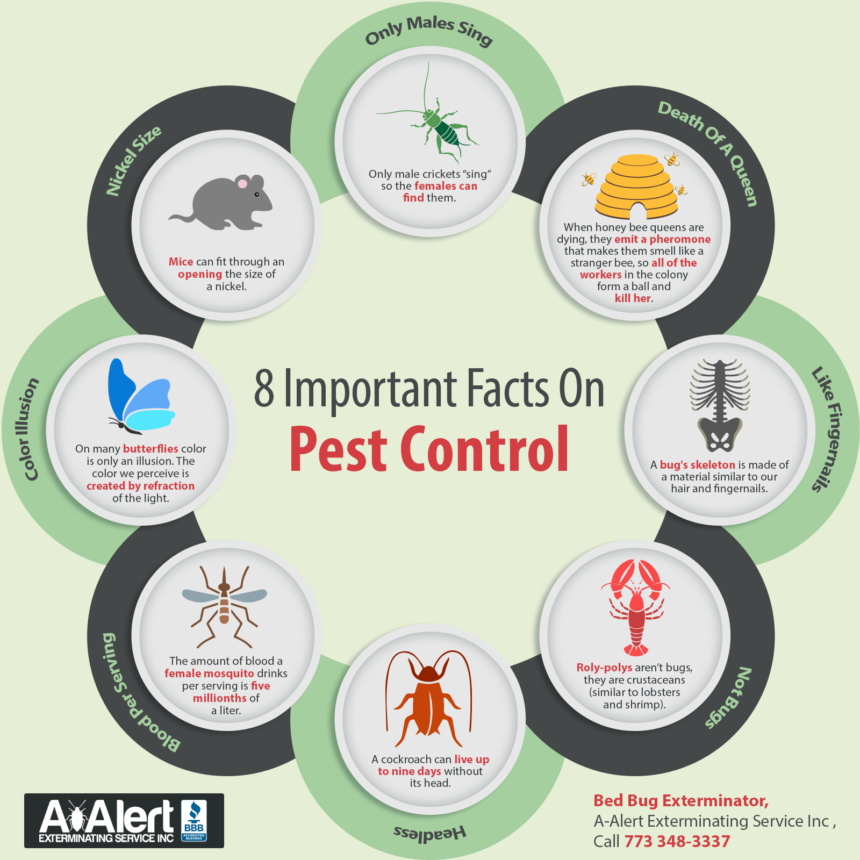The Psychology of Pest Behavior: What Drives Infestations?
Each property owner knows the distress of discovering an undesirable pest inside their home. From tiny ants marching across the kitchen surfaces to the dreaded sight of a cockroach running away away, these tiny invaders have a knack for transforming a calm home into a source of stress. Gaining insights into the psychology behind the behavior of pests can offer understanding into why pest invasions happen and ways to successfully manage them.
Pests are driven by basic instinctual and needs, in search of food, shelter, and places to breed. While we explore into the complexities of these behaviors, we'll explore typical household pests and the most effective strategies for keeping them at bay. This manual will cover everything from the reasons that do-it-yourself pest management often falls short to when it's more suitable to call in the professionals. With the appropriate understanding and proactive measures, you can maintain a pest-free space throughout the entire year.
Key Pest Management Strategies
To keep a pest-free home, it is essential to implement a combination of proactive measures and reactive actions. Begin by sealing any entry points that pests may use to enter your home. Examine window frames, entryways, and foundation cracks for holes and use caulk or weather stripping to seal them. Additionally, keep your home organized by frequently cleaning areas where food might be accessible, as crumbs and spills can lure unwanted visitors.

In addition to sealing entry points, proper landscaping holds a key role in pest control. Keep your garden tidy by cutting back bushes and shrubs that may house pests. Avoid planting flowers too close to your home, as they can serve as a gateway for insects to enter. Using mulch in moderation and keeping it a few inches away from the foundation can reduce moisture and deter pests from breeding near your home.
Finally, contemplate arranging regular pest inspections to identify infestations before they become severe. Professional pest control services can detect potential risks and recommend focused treatments. Remaining proactive with these important strategies not only erases the threat of pests but also provides peace of mind, guaranteeing a safe and pleasant living environment year-round.
Understanding Frequent Pests
Widespread household vermin can cause substantial annoyance and likely health risks. click , for example, are social insects that can invade homes in quest of food. Once they discover a reliable food source, they create pheromone trails that attract more ants, leading to larger infestations. Proper identification and elimination of food sources are essential to regulate these pests effectively.
Another prevalent common pest is the roach, notorious for thriving in filthy conditions. They are drawn to heat, moisture, and food remnants, making kitchens and bathrooms prime targets for infestations. Cockroaches can transmit diseases, so it is important to remove their presence through cleanliness and expert pest control when needed.
Bedbugs are difficult to detect pests that feed on blood and often go unnoticed until a significant infestation occurs. They are often brought in through second-hand furniture or travel. To recognize a bed bug problem, search for small reddish-brown stains on sheets and bites on the skin. Successful management requires a combination of thorough cleaning, sealing concealed areas, and expert extermination to guarantee these pests do not reappear.
Myths and Truths About Pest Control
Many property owners think that each pests can be easily managed with self-help approaches, causing the belief that expert pest control is not needed. Although some lesser infestations can be dealt with at home, more serious infestations often require specialized knowledge and tools that trained technicians possess. Self-help strategies may provide a temporary remedy, but they hardly address the root of the problem, which can lead to recurring issues.
One more common belief is that all pest control methods are harmful to the ecosystem or domestic creatures. This is simply accurate. Eco-friendly pest control methods have gathered popularity in recent years, offering efficient alternatives that preserve both your property and the planet. Employing eco-conscious pest control, such as essential oils or biological control agents, can be just as capable as conventional methods without the associated dangers.
In conclusion, numerous people think that after a pest control treatment is done, their home will be pest-free for good. This is a myth that can cause complacency. Routine inspections and preventive measures are essential. Pests can come back if their access points are not closed or if sufficient sanitation measures are not observed. Therefore, ongoing vigilance and routine pest control treatments are important in ensuring a pest-free home.